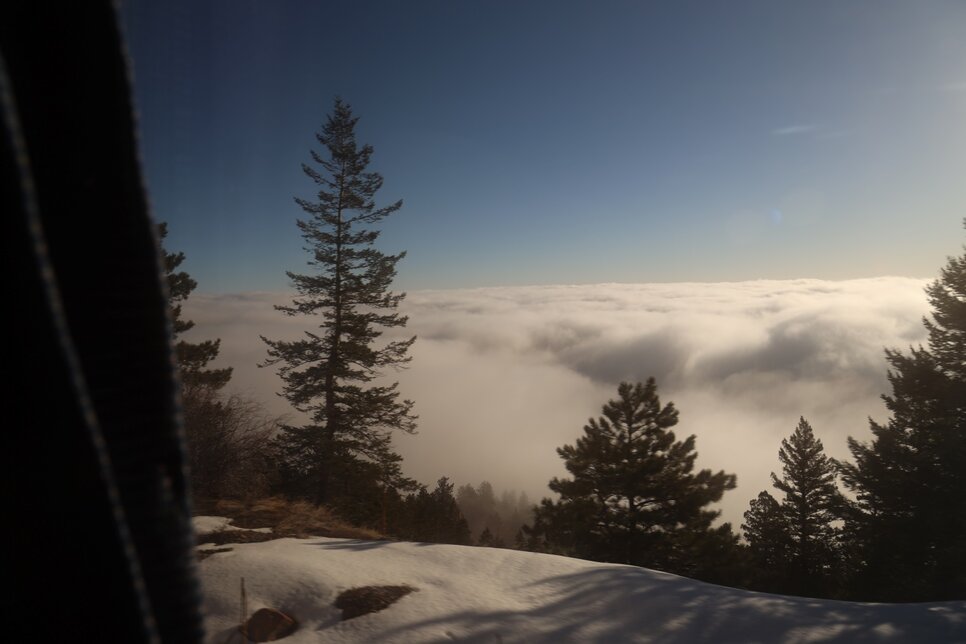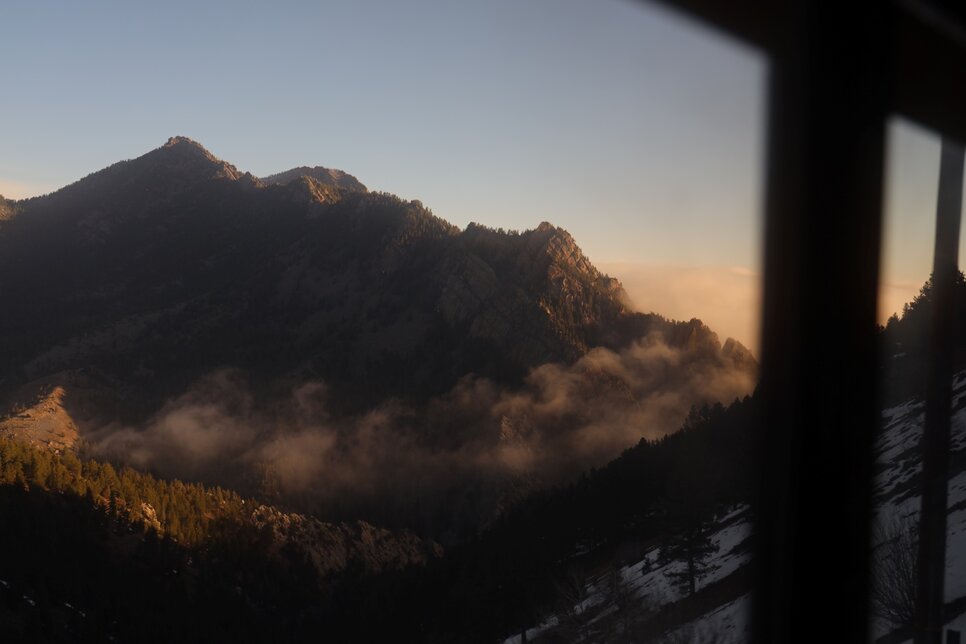Conductor Brad’s last ride

WINTER PARK, Colo. — On a bluebird day at Colorado’s oldest major ski area, they celebrated the resurrection of a train and the conductor credited with its revival.
Train enthusiasts, skiers, travelers, volunteers — they gathered, some unknowingly but most fully aware, for a retirement celebration of Brad Swartzwelter, the conductor of Amtrak’s Winter Park Express.
March 31 marked the train’s final trip of the 2024 ski season, and the swan song for Swartzwelter, who logged 212 trips as conductor of the Winter Park Express since 2015.
The “Express” is a nonstop, two-hour train ride from Denver’s Union Station to the base of Winter Park Resort. The route dates back to 1940, the same year Winter Park Resort opened to skiers.
The Denver and Rio Grande Western Railroad originally operated the line — then called the “Ski Train” — until 2009, when rising costs and the global financial crisis resulted in cancellation of the service.
Swartzwelter’s trips leading the ski train total about 24,000 miles, nearly the circumference of the earth. The impressive achievement is made more notable by the fact that Swartzwelter, who turns 60 in June, willed it to be this way.
“We would not be where we are today if it wasn't for Brad,” said Gary DeFrange, the former president of Winter Park Resort, who rode the train Sunday. “You know, in your life, every now and then you meet somebody that you feel good about and you feel you created an immediate relationship. And that's what it felt like with Brad.”
The first two cars on the train were reserved for Swartzwelter’s friends and family. Scores of passengers wore a pin adorned with his portrait. Swartzwelter’s mother, wife, children and grandchildren were all riding with him, dutifully laughing along to the jokes he made over the intercom.
“It is so humbling for this mother to see what that man’s dream and enthusiasm has brought about,” said Swartzwelter’s mother, Diana, as the train snaked through the Flatirons.
When Swartzwelter was about five years old, his family would vacation at Sheriff Ranch in Granby, where they would fish in the Colorado River. Swartzwelter, though, was far more interested in waving at the passing locomotives. Half a century later, those trains — some operated by Swartzwelter — still roll over the tracks.
“I knew he would be on trains,” Diana said.
The Express arrived at the Winter Park platform right at 9 a.m. Clad in ski boots, many passengers eagerly departed for a near-cloudless day on the slopes. Brad and his crew quickly opened the lower cabins so people could grab their skis and snowboards.
But many passengers weren’t in Winter Park to ski. They were there for conductor Brad.
A group of them reserved the second floor of Doc's Roadhouse at the base of the resort for Swartzwelter’s retirement party. Friends gave speeches about Swartzwelter’s dedication to his work and the train community as a whole. Some people cried. Swartzwelter delivered a brief speech, too, focusing mainly on how the Express came to be.
“I think Brad's still going to be a big part of this community,” said Michelle Kempema, the executive director of the Colorado Model Railroad Museum in Greeley. “I think he'll continue to promote rail travel and just passenger rail in general.”


